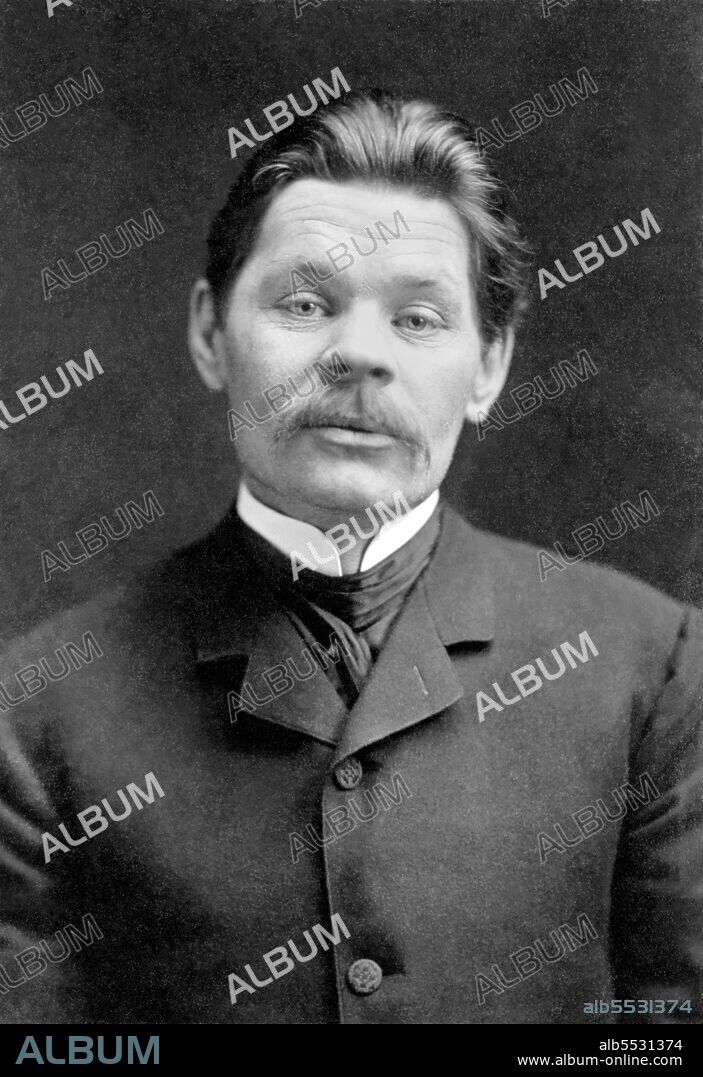alb5531374
Russia / USSR: Alexei Maximovich Gorky / Maxim Gorky, writer and political activist (1868-1936), Herman Mishkin, c. 1906

|
Zu einem anderen Lightbox hinzufügen |
|
Zu einem anderen Lightbox hinzufügen |



Haben Sie bereits ein Konto? Anmelden
Sie haben kein Konto? Registrieren
Dieses Bild kaufen.
Nutzung auswählen:

Titel:
Russia / USSR: Alexei Maximovich Gorky / Maxim Gorky, writer and political activist (1868-1936), Herman Mishkin, c. 1906
Untertitel:
Siehe automatische Übersetzung
Alexei Maximovich Peshkov, primarily known as Maxim (Maksim) Gorky, was a Russian and Soviet writer, a founder of the Socialist realism literary method and a political activist. Gorky's most famous works were The Lower Depths (1902), Twenty-six Men and a Girl, The Song of the Stormy Petrel, The Mother, Summerfolk and Children of the Sun. He had an association with fellow Russian writers Leo Tolstoy and Anton Chekhov; Gorky would later write his memoirs on both of them. Gorky was active with the emerging Marxist social-democratic movement. He publicly opposed the Tsarist regime, and for a time closely associated himself with Vladimir Lenin and Alexander Bogdanov's Bolshevik wing of the party. For a significant part of his life, he was exiled from Russia and later the Soviet Union. In 1932, he returned to Russia on Joseph Stalin's personal invitation and died in June 1936.
Bildnachweis:
Album / Pictures From History/Universal Images Group
Freigaben (Releases):
Bildgröße:
3500 x 5097 px | 51.0 MB
Druckgröße:
29.6 x 43.2 cm | 11.7 x 17.0 in (300 dpi)
Schlüsselwörter:
 Pinterest
Pinterest Twitter
Twitter Facebook
Facebook Link kopieren
Link kopieren Email
Email
